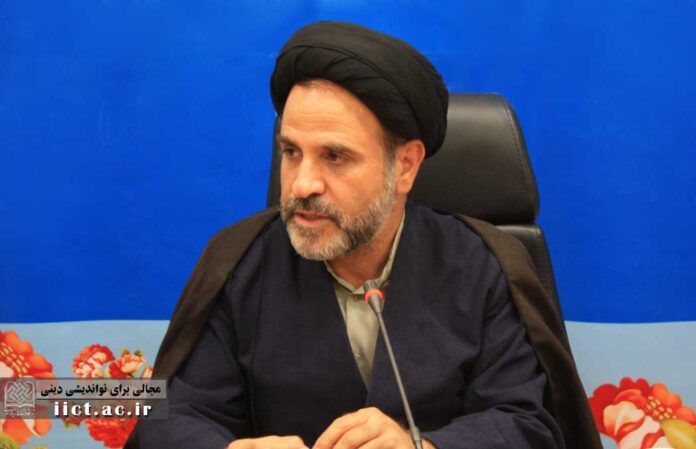“Wilayat,” pronounced with an open “waw” meaning affection, and with a closed “waw” meaning authority, leadership, guardianship, and sovereignty, is said to represent “government.” The term “wali” refers to someone who provides support and assistance.
The term “wali” in its linguistic context refers to God as the owner of all things that can be acted upon. Ibn Athir explains that “wilayat” implies management, power, and action, and one cannot be called a “wali” unless these three characteristics are present. In a political-social sense, as used in the Quran, “wilayat” signifies guardianship and leadership. Thus, the concept of wilayat includes a form of power, which manifests in society, politics, and community leadership.
Wilayat has always been a foundational and steadfast principle in Shia political thought. It is deeply embedded in fundamental texts of this ideology, such as the Quran and Hadith, and has remained a focus in the teachings and speeches of Shia scholars over time. The term “wali,” from which various words like “wala,” “wilayat,” “mawla,” and “awla” are derived, is one of the most frequently used terms in the Quran. It appears 124 times as a noun and 112 times as a verb, with its primary meaning being the positioning of something next to another without any distance between them.
When we examine Shia political thought, we find that “wilayat” and adherence to it have played a central role in its core principles, even influencing the pursuit of justice and freedom.
Justice, while present in Shia thought, is intrinsically linked to wilayat. The idea of striving for justice and opposing tyranny and unjust rulers emerges from this concept. Wilayat fundamentally opposes despotism, oppression, and arbitrary actions, aiming to organize societal affairs according to divine law. Given this constant element, we arrive at another fundamental principle: freedom. Freedom and rule of law, particularly when manifested in the person of the “wali,” especially if they are infallible, are two sides of the same coin. Divine law, when grounded in a secure and comprehensive divine source, both liberates individuals from chains of despotism and provides freedom to society.
Shia political thought and jurisprudence view wilayat not as a means for exercising power and fulfilling personal desires but as a central principle for prophets, saints, Imams, and their successors to implement justice among people. The most trustworthy individuals for this great goal are those who are infallible, just, and knowledgeable in religion.
The Prophet Muhammad (PBUH) and the Imams, who are the most familiar and reliable in receiving and executing divine revelation due to their connection with the source of divine light, are entrusted with wilayat. The Quran emphasizes this in Surah Al-Ma’idah, stating, “Your guardian is only Allah and His Messenger and those who believe, those who establish prayer and give zakat while bowing.”
Additionally, it is mentioned elsewhere that “It is not for a believing man or woman, when Allah and His Messenger have decreed a matter, to have any choice about their affair.” When Allah and His Messenger (PBUH) have decreed something, no one has the right to choose or act otherwise, as wilayat encompasses the leadership and guidance of society toward its ultimate goal without error or despotism.
Historically, Shia jurisprudence shows that wilayat has always been a fundamental and stable principle. This has led scholars to engage in politics, critique undesirable powers, guide people, and strive to implement religious laws. Wilayat has served as a crucial tool for advancing justice, challenging despotism, and addressing issues of freedom and rule of law.
Wilayat, alongside justice, knowledge, and governance in the person of the “wali,” acts as a safeguard against despotism and is a key mechanism for ensuring the welfare of the people and the religious community. Whenever Shia scholars have seriously addressed and applied this concept, it has become a means to challenge oppressive and illegitimate powers and confront major issues.




